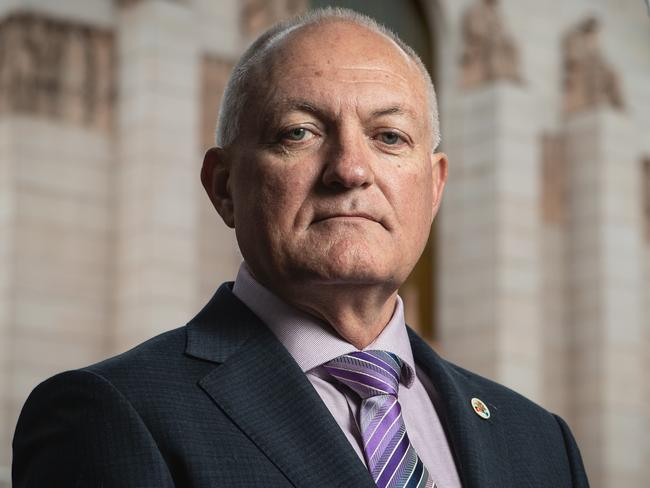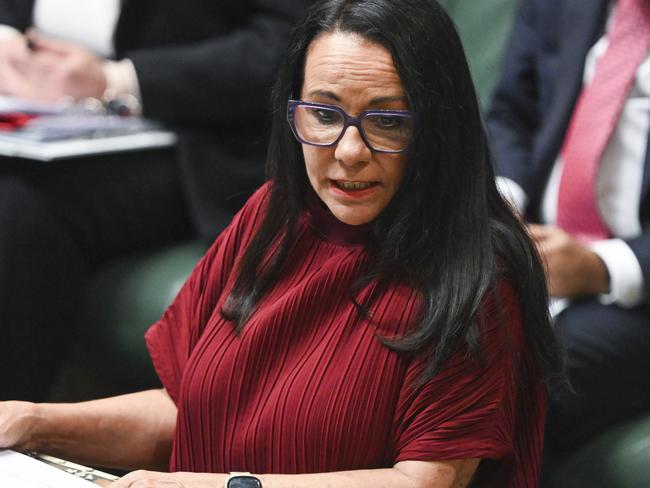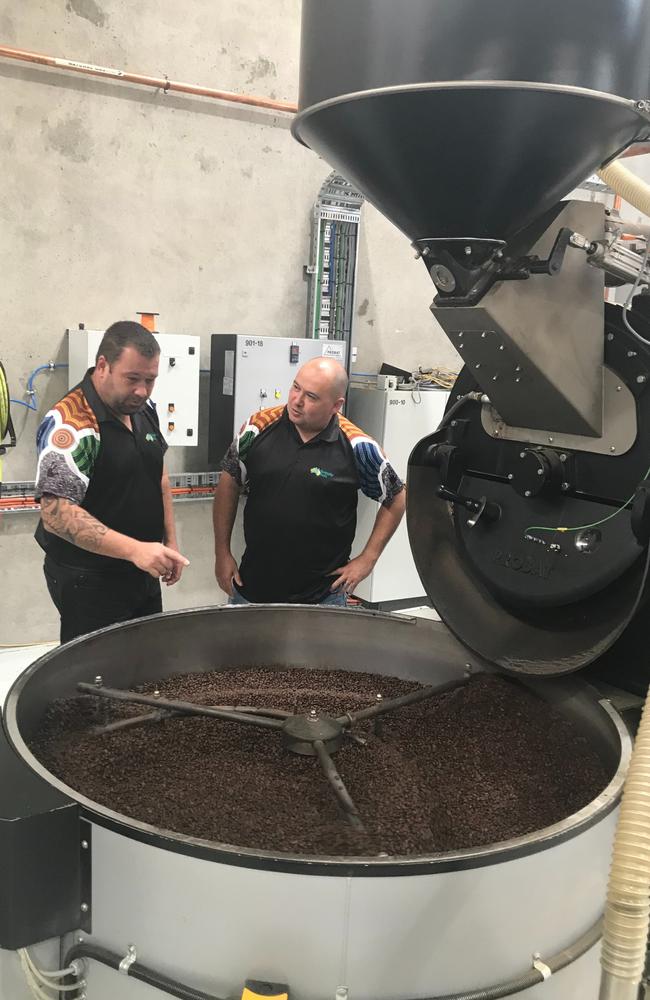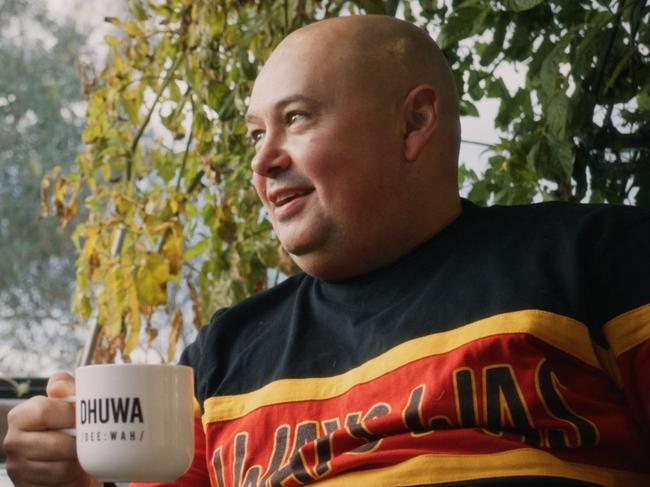Dhuwa Beverages shareholder says it’s ‘100% black-cladded’ as NSW government vows verification crackdown
The Minns government is promising a new crackdown on “black cladding” as a businessman alleges a company he and another Aboriginal man majority-own has been “stolen” by non-Indigenous shareholders.
NSW
Don't miss out on the headlines from NSW. Followed categories will be added to My News.
The state’s Aboriginal Affairs Minister has revealed he wants to crack down on black cladding by tightening Indigenous business accreditation and switching verification away from the official certifier the Albanese government supports.
David Harris also told The Daily Telegraph he is aiming to give small, “real” Aboriginal enterprises more help with tendering for taxpayer-funded work so they can compete with bigger companies which, in some cases, have formed joint ventures to manipulate the current system and get an unfair advantage.
The state government’s aspirations have emerged after a series of stories by The Daily Telegraph raising concerns about shortcomings in the existing rules.
Mr Harris said he first heard of black cladding four years ago, when a NSW Aboriginal business that had partnered with a WA company to win a government contract was then cut out of the lucrative deal a few months later.
“I was quite outraged by that,” Mr Harris said on Tuesday.

He said it was a problem he had looked at “fairly deeply” while in opposition after hearing “lots of stories about these sorts of things.
“There are issues around black cladding,” he said.
“One of my aims will be to really tighten up the procurement area to ensure that real Aboriginal businesses get the procurement contracts that they should be getting.”
He noted that Supply Nation is the official national register for Indigenous business, but “the problem there is their accreditation process is probably not as tight as it should be.”
Mr Harris said he had been “talking to the NSW Indigenous Chamber of Commerce about what we could do separately in NSW in terms of accreditation.
“They (the NSWICC) have a much more robust process. Their investigations go more deeply,” he said, leading to only a few hundred businesses being certified, instead of the several thousand that have the tick from Supply Nation.
“People who go through the chamber are probably more likely to get links into the Aboriginal business community. I want to explore that.
“If we can’t get that accreditation right then the whole system is at jeopardy,” Mr Harris said.
“The real Aboriginal businesses are pushed out of the market because they can’t compete with the big guys.
“If you are non-Aboriginal company that can wrongly claim some Aboriginal connection that gives an advantage. That’s not what the procurement targets are about.”

Mr Harris said he was keen to see if part of the $20 million earmarked under the Closing the Gap agreement for work on Indigenous economic development could be used to “put some focus on accreditation”.
Supply Nation said its verification process was “rigorous” and the only one that was nationally recognised.
Mr Harris also said he wanted to help improve the capacity of smaller Aboriginal businesses to tender for government contracts, including by giving the NSWICC extra resources to offer legal advice and training.
Supporting Aboriginal economic development would lift health and education outcomes, he suggested.
Strengthening accreditation of Indigenous businesses would likely be raised at the third Aboriginal business roundtable in Dubbo in June, Mr Harris said.
‘100 per cent black-cladded’
Shawn Andrews alleges the Dhuwa coffee brand he and another Aboriginal businessman started and got into nearly 1000 Woolworths stores is now “100 per cent black-cladded” after being “stolen” by the non-Indigenous minority shareholders.

Mr Andrews accuses the 49 per cent owners of both trademarking the name Dhuwa – a word with deep spiritual meaning to Aboriginal people – and changing the operation’s domain name without permission while he and business partner Adam Williams were studying at Harvard University in Boston in May last year.
Mr Andrews said in 2021 he and Mr Williams had partnered with the minority shareholders, who were also the contract manufacturers, while progressing plans to buy a roastery of their own, which they have since done.
The trademark dispute is still to be resolved. Mr Andrews alleges the minority shareholders are funding their side of the legal fight with cash from the Dhuwa business. He stood down as a director in November last year and said he is not involved in the company’s operations.
In an interview with The Daily Telegraph, Mr Andrews claimed only one Aboriginal person was ever employed in the manufacturing operation – as a packer.

Dhuwa Beverages remains registered as an official Aboriginal business with the federal government-backed verification agency Supply Nation, despite one of the tests for accreditation being “at least 50 per cent Indigenous control … of the joint venture and Indigenous involvement in the management of the joint venture.”
Businesses registered by Supply Nation are eligible for work with companies that have won major government tenders that require at least 1.5 per cent of the contract value to be spent with Aboriginal enterprises.
The NSW and federal governments allocated about $2 billion to Aboriginal enterprises under Indigenous procurement policies (IPPs) last financial year.
Mr Andrews said the Dhuwa story showed why it was necessary to reform the test for qualifying as an Aboriginal business under IPPs.
“Non-Indigenous businesses see it as an opportunity to make money,” Mr Andrews said, by increasing market share. “It is ripping off the whole point of what this process is meant to be.”
Supply Nation defines black cladding as a “non-Indigenous business … taking unfair advantage of an Indigenous business entity … for the purpose of gaining access to otherwise inaccessible Indigenous procurement policies or contracts.”
Questions were sent to Dhuwa’s non-Indigenous sole director, who replied: “We are looking forward to Shawn returning in full capacity when he sees fit. Shawn remains on board as a majority shareholder.”
Supply Nation said it had yet to get a request from Mr Andrews to remove the business from its register, however, if he did “we will take immediate and appropriate action.”
More Coverage
Originally published as Dhuwa Beverages shareholder says it’s ‘100% black-cladded’ as NSW government vows verification crackdown





